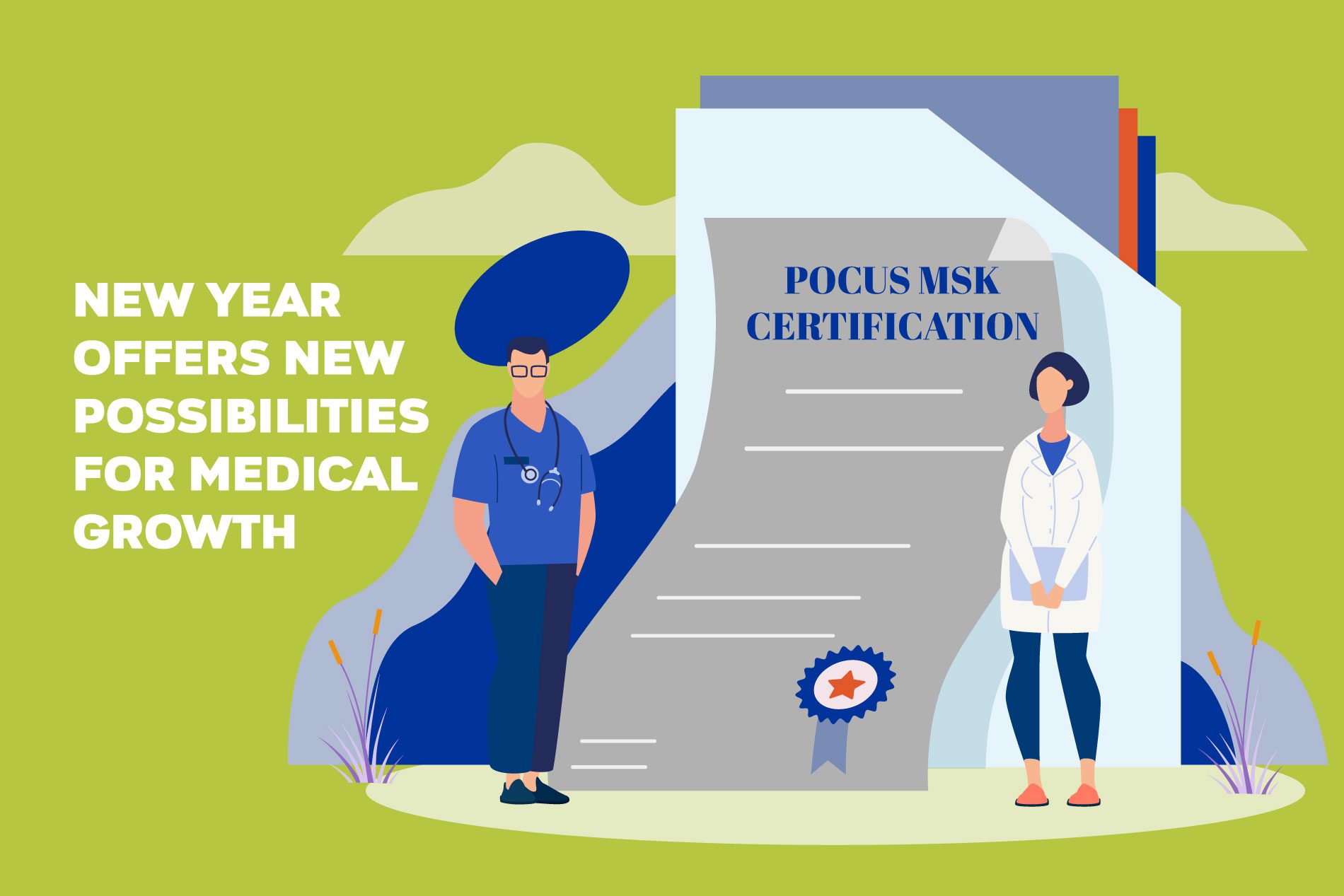The medical community is on a journey, and the destination is a society where high quality, accessible care is available around the globe. Healthcare professionals who embark on this expedition strive to practice at the best of their abilities to benefit the patients they serve and the field they love.
The new year’s transition marks a checkpoint where healthcare providers pause, consider what they have learned, and use this insight to navigate the path they take towards their goal. Annual advancements in medicine and technology enable healthcare providers to practice with up-to-date capabilities, thereby improving the patient and clinician experience.

Prioritizing Patient Care with POCUS
Point-of-care ultrasound (POCUS), in a vast number of ways, embodies the end goal of providing affordable, high-quality care. It has seen an increase in popularity due to its low cost and enhanced portability. This modality offers benefits that extend past its traditional use in imaging and radiology by providing medical workers across specialties the ability to collect immediate insight that can inform their diagnoses safely.
Global Clinical Content Manager and POCUS Educator, Dr. Victor Rao of the Point-of-Care Ultrasound (POCUS) Certification Academy™ shared how the number of available devices, the low price point, and increased awareness of POCUS has led to its use in specialties that have historically not utilized ultrasound. According to Dr. Rao, POCUS’s two instrumental factors are its ability to provide real-life solutions and bedside care.
As the value of POCUS has received heightened awareness, more non-traditional ultrasound users have started incorporating it into their practices. Musculoskeletal (MSK) POCUS, in recent years, has grown in popularity as healthcare workers have recognized how POCUS can help inform decisions regarding day-to-day conditions.
Increased awareness of POCUS’s benefits
Research corroborates the benefits of utilizing ultrasound as the first diagnostic tool for a range of MSK conditions due to its noninvasive nature. Also, its ability to provide real-time imaging allows healthcare workers to witness the movement of different musculoskeletal variables. Additionally, its portability allows for it to be implemented anywhere, and the visibility it offers enhances the patient experience.
POCUS is a valuable asset in informing MSK condition diagnoses and can improve patients’ outcomes, however, there are important considerations for clinicians to be aware of to ensure it advances rather than hinders their diagnostic abilities. These include educational details around:
- Competence
- Normative data and disease prevalence
- Definitions of pathology
- The influence of technology
- Validity and reliability
- How MSKPOCUS impacts the patient and patient outcomes
With the increase of knowledge surrounding the advantages of using POCUS to help guide MSK diagnostics in daily care, healthcare workers at all stages of their journey, including those in specialties that have historically not involved ultrasound, have begun to employ it. POCUS Certification Academy’s new MSK Certification provides an opportunity for these medical professionals to demonstrate their expertise and capabilities.
POCUS Certification Academy supports the growth of healthcare professionals
The POCUS Certification Academy’s POCUS MSK certification is geared towards non-conventional ultrasound users and focuses on a targeted set of conditions that they encounter daily. Additionally, its engaging nature provides an educational and hands-on opportunity for healthcare professionals to demonstrate their real-world knowledge in the use of POCUS to diagnose MSK conditions, enhancing their diagnostic capabilities to gain a critical edge in their career.
The focused nature of POCUS Certification Academy’s new certification provides practitioners the chance to showcase their expertise on a scale directly related to how they will utilize it in their practice. It’s focus includes:
- MSK Soft Tissue
- MSK Lower Extremity
- MSK Upper Extremity
In an interactive process, with case assessments, peer evaluations, and clinical case submissions, healthcare professionals can engage in a simulated environment as they do with their patients allowing for an informative and involved experience. This experience ultimately concludes with healthcare workers receiving a certification that spotlights their skills, along with their commitment to providing better care.
As Dr. Rao explained, along with providing accurate information, “patients love it, it’s painless, there’s no radiation. It’s a win-win.”
Interested in becoming MSK certified? Visit our website!





















